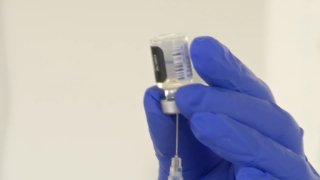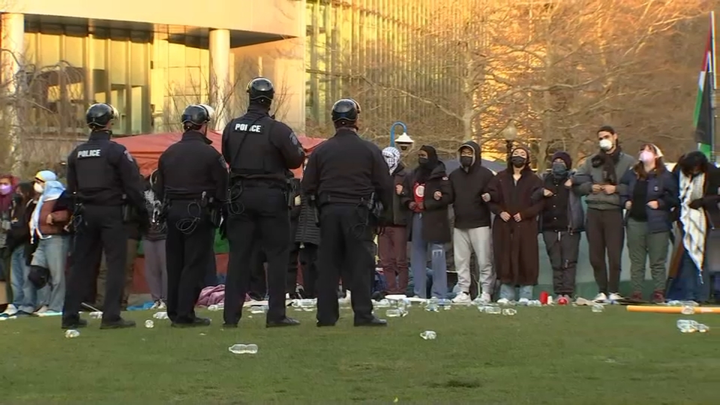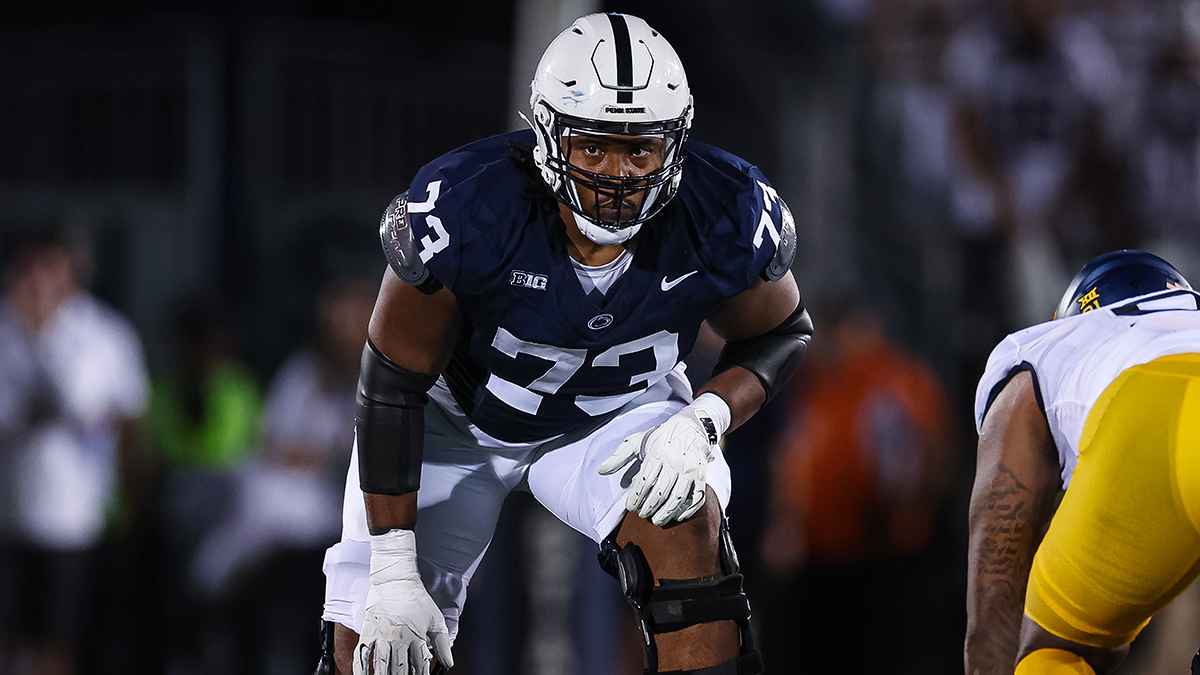
Health experts on Wednesday praised bills that would nix the religion exemption for vaccinations as they warned about the rise of preventable diseases, such as measles and polio, while many parents who do not believe in immunizations opposed them during a contentious hearing.
Under current state laws, parents and guardians can request a religious exemption -- though there's no official form -- by stating in writing that a "vaccine conflicts with the individual’s sincerely held religious belief."
Bills sponsored by Rep. Andy Vargas and Sen. Edward Kennedy (H 604 / S 1391) would remove that option in an attempt to prevent disease outbreaks in the classroom and provide more protections for students who are immunocompromised and unable to get vaccinated. The legislation would apply to public, charter and private schools, according to a Kennedy aide.
During a Joint Committee on Public Health hearing, Kennedy said the rising volume of religious exemptions is hindering schools from reaching herd immunity. The situation occurs when a high enough percentage is immune to an infectious disease -- including through vaccination or contracting the disease -- and there's "little opportunity" for it to spread, according to the Centers for Disease Control and Prevention.
Get Boston local news, weather forecasts, lifestyle and entertainment stories to your inbox. Sign up for NBC Boston’s newsletters.
"So-called religious exemptions in Massachusetts have risen by an astonishing 500 percent since the 1980s, despite residents' religious affiliations in the commonwealth decreasing over the same time span," Kennedy said. "This indicates that many people are taking advantage of the religious exemption and not vaccinating their children because of personal beliefs or misinformation, rather than legitimately deeply held religious concerns. Massachusetts does not allow vaccine exemption for philosophical reasons; using the religious exemption to exempt oneself for getting a vaccine for non-religious reasons is already a violation of the law."
Vargas said the legislation doesn't require that children have the COVID-19 vaccine as a condition for attending school since the bill does not add the COVID-19 vaccine to the list of vaccines children must have. Citing court cases, he balked at the "false" argument that his bill is unconstitutional.
State kindergarten data show there were 147 religious exemptions for immunizations in the 1987-1988 school year, compared to 418 in 2003-2004 and 747 in 2011-2012. In the most recent school year, there were 813 religious exemptions.
Local
In-depth news coverage of the Greater Boston Area.
Children need to receive a series of vaccines in order to enter kindergarten -- such as the MMR shot to prevent measles, mumps, rubella and chickenpox -- or seek medical or religious exemptions.
In kindergartens across the commonwealth, nearly half or more than half of their students lack "critical" vaccinations, said Chloe Schwartz, director of maternal and infant health initiatives at March of Dimes. Familes who refuse or delay vaccines for non-medical reasons cause elevated risks for others in the community, including newborns who do not have vaccine protections.
"Vaccines are a highly effective means of preventing infectious diseases -- one of the greatest public health achievements of the 20ths century," Schwartz told lawmakers.
Parents who oppose the bills said they may need to leave Massachusetts if their unvaccinated children can no longer attend school and receive in-person support, including mental health counseling. Others lamented the prospect of needing to home-school their children, which poses financial burdens for working parents and guardians.
Rep. Marjorie Decker, co-chair of the Joint Committee on Public Health, had to repeatedly ask people waiting to testify in Gardner Auditorium to stay quiet and refrain from clapping, as the bills on the agenda drew sharp vocal opposition in the aftermath of the COVID-19 pandemic.
Leah Allen, a former state representative and Republican lieutenant governor candidate, said that thousands of families will be "devastated" and their lives "destroyed" should the bills be signed into law. Allen, a mother of two with a third child on the way, lost her nursing job for not complying with a COVID-19 vaccine mandate.
"With the passage of this bill, my beautiful daughter who has no control over the choices I make for her as a parent will suffer," Allen told lawmakers. "She will be cast out, marginalized and will bear the brunt of yet another unfair mandate. My family's deeply held religious beliefs will not change."
Genevieve McClay, a Boston University graduate and a church board member, said she and her sisters attended school in Massachusetts with religious exemptions, as their mother worried about the possibility of vaccines causing "serious adverse reactions." Without the exemption, McClay said she would have been barred from attending school and instead "treated as a second-class citizen."
McClay said she's attended an independent ministry since age 10, as she emphasized there's "hundreds" of Christian denominations and varying beliefs that should be protected under freedom of religion.
"When I become a mother, I will not vaccinate my children. If I'm at risk of serious adverse reactions, then they will be too, and it will be my job to protect them," McClay told lawmakers. "I'm not asking you to agree with me or make the same choices for your family. I'm just asking you to let us be -- Massachusetts is our home, too."
Dr. Richard Moriarty, a pediatric infectious disease specialist for more than four decades and a professor at UMass Chan Medical School, argued that no religion is opposed to vaccines.
Moriarity said he's seen children "severely injured" by preventable diseases -- like measles, pertussis and congenital rubella -- that are rare when there's high vaccination rates, he said.
"A religious exemption is just a proxy for a personal belief exemption," Moriarty said at the hearing. "Ending the exemption would quickly improve our immunization rate. Under-immunized communities around our state are a setup for expensive outbreaks like measles and pertussis. This bill would cost nothing and would protect more children."



